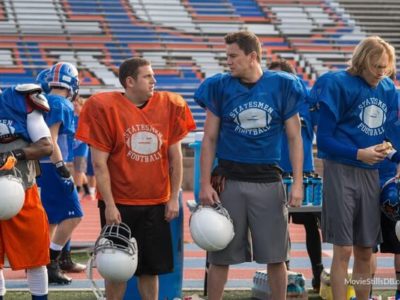Life as a student athlete is a fine tuned balancing act. There are many benefits of playing a collegiate sport, but the demands can be just as plentiful and far less enjoyable. I walked-on to the rowing team my freshman year at UW Madison, oblivious to the difficulties that I would have to overcome. After a year struggling at the oars, those hardships ended up overcoming me.
Rowing is a timeworn sport dating back to Ancient Egypt. It is world renowned, elegant and quite possibly the most masochistic option available for naive college students looking to play college level. I was approached by an unusually tall senior rower at my freshman orientation, attracted by my similarly unusual height. He filled my head with glorious visions of Big Ten competitions, national regattas, training camps and the alluring world of rowing. As an incoming freshman at UW Madison, I was blissfully unaware of the impending requirements.
Everything he had told me was true. I went to the Big Ten championships, escaped the frozen Wisconsin winters for the tropics of a Florida training camp and met fellow rowers as far away as Poland. I found friends in my teammates and grew immensely stronger both mentally and physically. I even became a popular commodity at parties because I could throw inebriated people over my shoulders and literally carry them home. However, there were some cons I wish I had been warned of beforehand.
College sports are very greedy animals. I spent more time at practice than I did in classes. Clubs and societies were great in theory but I couldn’t fit them into a schedule dominated by mornings on the water and afternoons on the ergometers (legalized modern torture devices disguised as rowing equipment).
As I watched my free time wither away, my tolerance for the sport followed suit. For a student athlete to willingly submit to the rigorous scheduling, training and academic demands of their lifestyle, she must truly love the sport. I didn’t love rowing, but I respected it and was stubborn enough to keep with it for the full year.
In rowing, you are in constant competition for spots in the racing boats. You support your teammates and they support you, but rowing is a team sport performed individually. Consequently, crews change day to day and race to race. Successes are short-lived and failures are devastating.
The lack of security made the practices increasingly hard to get through. Pulling well on the ergometers requires confidence and a mental disregard for grueling pain. In my case, both prerequisites declined steadily as the season progressed. A rib and back injury halfway through the season accelerated the decline and I spiraled into a characteristic fit of depression.
I bit off more than I could chew and was far too bone-headed to spit it out. College provides ample opportunity for experimenting and experiencing, but I’d made the rookie mistake of anchoring myself to one thing right away. I went to a doctor about my back injury as my freshman year came to a close and found my scapegoat. Upon learning that my spine was twisting and would crush my lungs if I continued, I finally had a viable reason to leave rowing in my past.
With my newfound free time, I opted to try out club sports for my next few years at Madison. I looked for a gentler option in an effort to avoid the mental and physical burdens I’d experienced with rowing. I’ve since taken up rugby.
The close of my freshman year saw the end of my career as a college athlete and the beginning of my career as a college student. I was too attached to rowing to feel comfortable letting it go, but I became exponentially happier when I finally did. Whether considering clubs, internships or majors, I now reflect on which are beneficial to me and eliminate those that aren’t. The concept is simple enough, but it’s one that took a lot of blood and sweat to drive home.



















